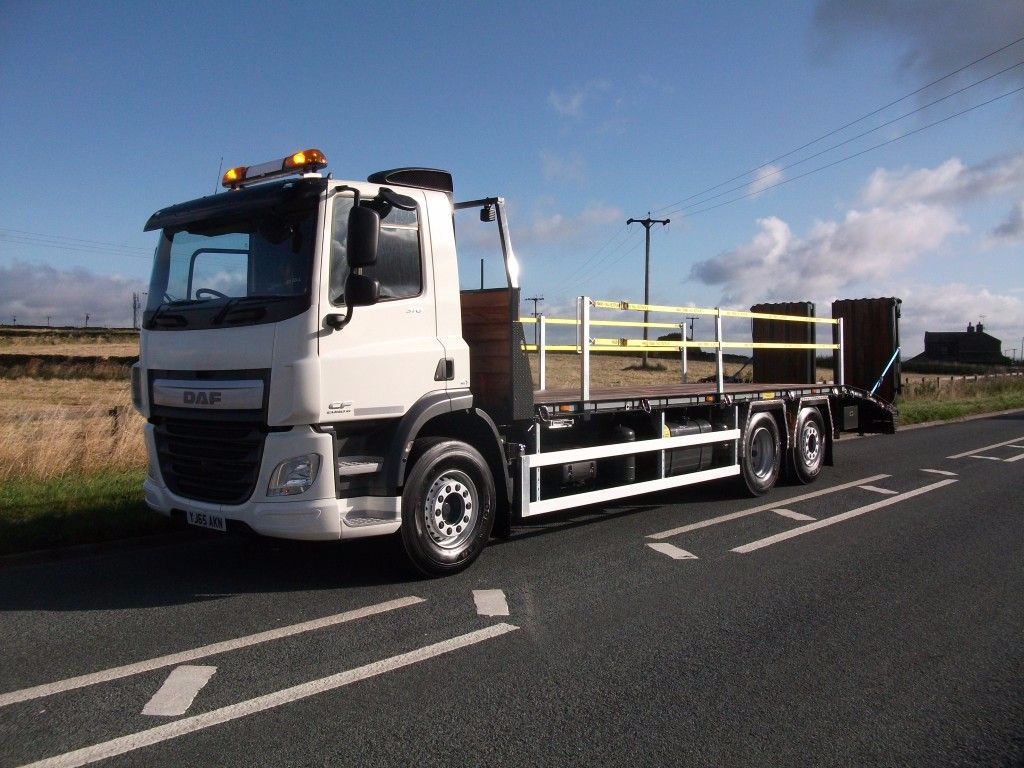According to the Office for National Statistics (ONS) between October and December 2022, construction work increased by 0.3%. This was mainly due to growth in both new work (0.4%) and repair and maintenance (0.1%). Overall, the construction industry saw an output increase of 5.6% in 2022 compared to 2021. This follows a record increase in 2021 of 12.8%. In terms of costs, new orders rose by 30.5% in 2021 to £72,578 million. The highest level in over 45 years, driven by private housing, private industrial, and commercial buildings.
Construction workers who operate in high-growth areas such as housebuilding and infrastructure are closely guarded by regulations. For instance, the Construction (Design and Management) Regulations 2015, Control of Substances Hazardous to Health Regulations (COSHH) 2002, and Health and Safety (Consultation with Employees) Regulations 1996. Therefore, high-quality construction trucks are required to be awarded contracts and maintain efficiencies. When it comes to construction, the right tools and trucks are often the key to a successful project.
Why Hire A Construction Truck?
Construction trucks for hire come in many shapes, sizes, and varieties, depending on the type of construction you are doing. A great way to get the job done quickly and efficiently. They are essential pieces of machinery to get your project running as they can help clear land, move large objects, work on rough terrain, and much more.
Mac’s Truck Rental are a truck rental specialist, with a fleet of construction vehicles for hire for short and long-term rental. Having many years of experience, they can work with you to deliver the trucks to wherever you need them across the UK. Meaning your construction trucks aren’t sitting unused in yards. Equally, you’re not struggling to complete jobs due to a lack of vehicles.
Depending on the length of lease you require, you have various options when choosing which construction vehicle to hire. You can choose a high-quality late-used truck that complies with the latest regulations. Or a brand new truck with a custom body built specific to your needs, that also features custom colours and branding throughout. By hiring a construction truck, your business will be compliant immediately, with new trucks available to you as and when you need them in the future.
What to consider when renting a construction vehicle?
When looking for the perfect construction truck for hire, it is important to consider the following factors:
Project Size
Consider the size and scope of your project when choosing the right construction truck. If you are working on a large construction project, you may need a larger truck with a higher capacity.
Material Type
The type of material you need to transport will determine the type of construction truck you need. For example, if you need to transport heavy materials, such as concrete, you may need a concrete mixer truck.
Cost
The cost of renting a construction truck will depend on the size and type of truck you need, as well as the rental period. Be sure to get quotes from several truck rental companies to find the best deal.
Types Of Construction Trucks For Hire
There are various types of construction trucks available for hire from Mac’s Truck Rental. The type of construction truck needed depends on the size and scope of the project, as well as the type of materials being transported.
Tipper Truck
Tipper grab lorry hire from Mac’s Truck Rental provides you with high-quality HGV grab loaders that help you complete the job at hand. Our tipper grabs feature bodies from Thompson, the UK’s Number 1 tipper bodybuilder. Optimised to deliver strength without compromising the tipper grab truck’s payload. Our tipper trucks also come equipped with Epsilon grab cranes, renowned for their performance in recycling, scrap, and timber industries with high-performance clamshell buckets.
Beavertail Truck
We take on the responsibility of making sure your business can simply and efficiently transport goods and materials. By providing you with the highest quality beavertail truck hire. Our beavertails come equipped with our own high-quality truck bodies, with a range of features. Including fall arrest systems such as protection straps that are mounted around the entire beavertail truck to meet safety regulations. As well as a fully remote-controlled winch system, and Euro VI engines.
Plant Transporter
Beavertail plant trucks from Mac’s Truck Rental are purpose-built for easy operation, with custom bodies designed to your specifications. Equipped with a heavy-duty plant body, manufactured in-house with a built-in fall arrest system. Enabling them to transport plant equipment easily and securely. What’s more, our trucks are Euro VI compliant and come fitted with a fully remote-controlled winch system.
